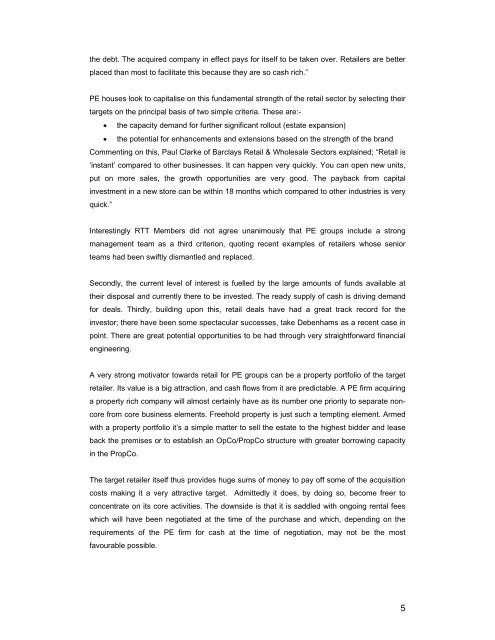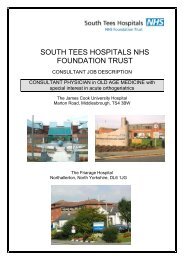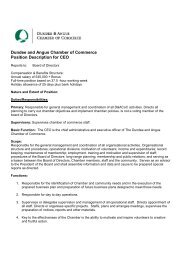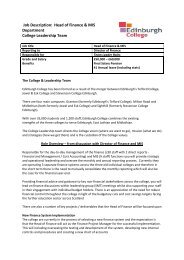KPMG / SPSL Retail Think Tank – White Paper #4 April/May ... - Hays
KPMG / SPSL Retail Think Tank – White Paper #4 April/May ... - Hays
KPMG / SPSL Retail Think Tank – White Paper #4 April/May ... - Hays
Create successful ePaper yourself
Turn your PDF publications into a flip-book with our unique Google optimized e-Paper software.
the debt. The acquired company in effect pays for itself to be taken over. <strong>Retail</strong>ers are betterplaced than most to facilitate this because they are so cash rich.”PE houses look to capitalise on this fundamental strength of the retail sector by selecting theirtargets on the principal basis of two simple criteria. These are:-• the capacity demand for further significant rollout (estate expansion)• the potential for enhancements and extensions based on the strength of the brandCommenting on this, Paul Clarke of Barclays <strong>Retail</strong> & Wholesale Sectors explained; “<strong>Retail</strong> is‘instant’ compared to other businesses. It can happen very quickly. You can open new units,put on more sales, the growth opportunities are very good. The payback from capitalinvestment in a new store can be within 18 months which compared to other industries is veryquick.”Interestingly RTT Members did not agree unanimously that PE groups include a strongmanagement team as a third criterion, quoting recent examples of retailers whose seniorteams had been swiftly dismantled and replaced.Secondly, the current level of interest is fuelled by the large amounts of funds available attheir disposal and currently there to be invested. The ready supply of cash is driving demandfor deals. Thirdly, building upon this, retail deals have had a great track record for theinvestor; there have been some spectacular successes, take Debenhams as a recent case inpoint. There are great potential opportunities to be had through very straightforward financialengineering.A very strong motivator towards retail for PE groups can be a property portfolio of the targetretailer. Its value is a big attraction, and cash flows from it are predictable. A PE firm acquiringa property rich company will almost certainly have as its number one priority to separate noncorefrom core business elements. Freehold property is just such a tempting element. Armedwith a property portfolio it’s a simple matter to sell the estate to the highest bidder and leaseback the premises or to establish an OpCo/PropCo structure with greater borrowing capacityin the PropCo.The target retailer itself thus provides huge sums of money to pay off some of the acquisitioncosts making it a very attractive target. Admittedly it does, by doing so, become freer toconcentrate on its core activities. The downside is that it is saddled with ongoing rental feeswhich will have been negotiated at the time of the purchase and which, depending on therequirements of the PE firm for cash at the time of negotiation, may not be the mostfavourable possible.5
















